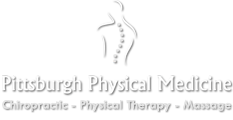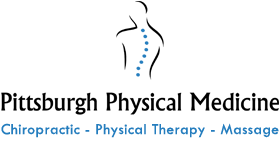Facet Syndrome in Pittsburgh PA

Facet syndrome, characterized by pain and limited mobility caused by irritation of the facet joints in the spine, can disrupt daily life. Fortunately, a combination of chiropractic manipulation and physical therapy offers a powerful approach to managing this condition. This synergy addresses both the mechanical and rehabilitative aspects of facet syndrome in Pittsburgh PA, providing patients with comprehensive relief and a path towards improved function.
Easing Pittsburgh PA Facet Syndrome: The Synergy of Chiropractic Manipulation and Physical Therapy
Chiropractic Manipulation: Restoring Alignment and Mobility
Chiropractic manipulation, also known as chiropractic adjustments, is a cornerstone of chiropractic care. Chiropractors use controlled and targeted force to manipulate specific joints, including the facet joints, aiming to restore their proper alignment and movement. For facet syndrome patients, chiropractic manipulation has several benefits:
- Pain Relief: Misaligned facet joints can lead to pain and discomfort. Chiropractic adjustments help alleviate this pain by reducing pressure on nerve endings and promoting natural pain-relieving mechanisms.
- Improved Joint Function: Manipulating facet joints increases their range of motion, allowing for smoother movement and reducing the risk of further irritation.
- Inflammation Reduction: Adjustments can aid in reducing inflammation around the facet joints, helping to alleviate swelling and discomfort.
- Enhanced Nervous System Function: Proper alignment can contribute to better nerve function, positively impacting overall bodily functions.
Physical Therapy: Strengthening and Rehabilitation
Physical therapy plays a vital role in addressing facet syndrome by focusing on strengthening the muscles around the affected area and enhancing overall posture and movement. Here's how physical therapy complements chiropractic manipulation:
- Muscle Strengthening: Weak muscles can contribute to joint instability. Physical therapy exercises target specific muscle groups, helping to improve support for the facet joints and reducing strain on them.
- Posture Correction: Poor posture can worsen facet syndrome. Physical therapists provide guidance on maintaining proper alignment during daily activities, reducing stress on the affected joints.
- Flexibility and Mobility: Stretching and flexibility exercises prescribed by physical therapists can enhance joint mobility, allowing for improved movement and reduced stiffness.
- Preventive Education: Physical therapists educate patients on body mechanics and ergonomic practices to minimize the risk of future facet joint issues.
The Synergy: Chiropractic Manipulation and Physical Therapy
Combining chiropractic manipulation and physical therapy creates a well-rounded care plan for facet syndrome. Chiropractic adjustments address the immediate discomfort and joint misalignment, while physical therapy contributes to long-term relief by improving muscle strength, posture, and overall movement mechanics.
Patient-Centered Approach
The success of this combined approach lies in its patient-centered focus. Both chiropractic care and physical therapy are tailored to the individual needs of each patient. Through comprehensive assessments and ongoing monitoring, healthcare professionals can adjust the care plan as needed, ensuring optimal progress towards pain reduction, improved mobility, and a better quality of life.
Conclusion
Facet syndrome can be a challenging condition to manage, but a combination of chiropractic manipulation and physical therapy provides a potent solution. By addressing both the structural and rehabilitative aspects of the condition, patients can experience comprehensive relief and lasting improvements in their overall well-being. Whether you're seeking pain relief, improved joint function, or enhanced muscle strength, the synergy between chiropractic care and physical therapy offers a promising pathway towards a healthier, more active life.
Request An Appointment Today!
OFFICE HOURS
Monday
8:00am - 6:00pm
Tuesday
2:00pm - 6:00pm
Wednesday
8:00am - 6:00pm
Thursday
8:00am - 6:00pm
Friday
8:00am - 12:00pm
Saturday & Sunday
Closed
Pittsburgh Physical Medicine
5916 Penn Ave
Pittsburgh, PA 15206


